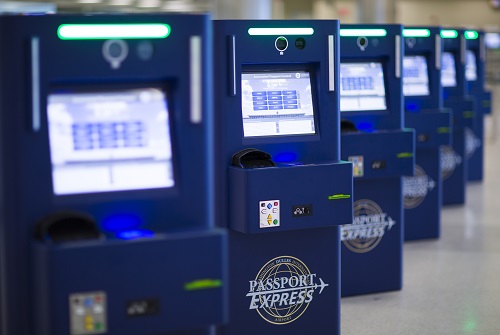
Intellectuals like Stephen Hawking and Elon Musk increasingly worry about an apocalyptic world awaiting in the not-too-distant future, when automation replaces all human work (and, in time, artificial intelligence displaces humanity). A new UK study finds the robots may have found an ally: a higher minimum wage.
A looming increase in the minimum wage will likely result in a robots replacing a growing number of workers, according to the Institute for Fiscal Studies (IFS).
The UK’s minimum wage – the National Living Wage (NLW) – will rise from £7.50 today to £8.50 ($11.50 U.S.) by 2020.
The IFS has surveyed the jobs likely to be paid minimum wage and measured the “routine task intensity” (RTI) of each one. As you may expect, RTI is higher for menial labor and lower for occupations that require judgment and decision-making.
The increase is unlikely to harm waiters, bartenders, or those involved in care professions, the report states.
“But those set to be brought within the minimum wage net in 2020 are more than twice as likely to be in the ten per cent most ‘routine’ occupations – such as retail cashiers and receptionists – as those who were directly affected by the minimum in 2015,” the IFS warns. “This kind of work tends to be easier to ‘automate.’”
It is not difficult to understand. Owners hire employees to perform tasks necessary to earn a profit. The higher their wage floor, the more tempting it is to invest in automatons who do not take breaks, go on strike, or get surly with the customers.
Thus, the unemployment rate rises as the minimum wage ticks up. The Labour Party’s proposal to raise the minimum wage to £10 (about $13.50 U.S.) “would bring even more employees in more automatable jobs into the minimum wage net,” the report states.
This is true across the transatlantic space. Theory will soon give way to reality in the United States, where California has just raised the state minimum wage to $11 an hour for businesses with more than 25 employees. When that rate reaches $15 an hour in 2023, it will cost 400,000 jobs, according to a study from the Employment Policy Institute (EPI).
EPI found that every 10 percent rise in the minimum wage reduces employment by two percent – or five percent for low-wage workers.
If the harm disproportionately hits those at the lower end of the wage scale, it also hurts those already living in pockets of economic stagnation. Canada’s Fraser Institute found that Ontario’s $15 minimum wage would have “severe effects” on those who live in “economically weaker regions” – that is, those whose communities are already suffering the most, presumably the ones the increase was intended to help.
Further, workers often face a panoply of impoverishing progressive policies. The “fight for 15” is usually conjoined with demands for steeper taxes on “the rich” to fund more generous public benefits. But the welfare state’s cost is seldom confined to the affluent, Dr. Madsen Pirie of the UK’s Adam Smith Institute explained in November:
The problem for the low-paid is not so much that employers pay too little, but that the government takes too much. At a mere £8,164 [or $11,050 U.S.] per annum, the government starts charging National Insurance at 12 percent. At only £11,500 [$15,563 U.S.] per year it starts charging income tax at 20 percent. Add the amount the government takes in VAT, insurance taxes, stamp duty, airport departure tax, fuel duty, alcohol duty and tobacco tax, and it adds up to a huge slice of a low-paid persons’ earnings.
Nonetheless, well-meaning Christian and Jewish clergy continue to protest for a $15 minimum wage in the United States as a matter of “justice.” Surely, the “robot apocalypse” is not the Parousia they hoped to bring to pass.
Automation is far from an unbridled negative. In time, it will create new breakthroughs, professions, and vocations in which human beings may exercise their gifts. But in the meantime, poorer workers in less attractive areas lose out.
This is another example of interventionist economic policies inspired by the best of intentions hurting the most vulnerable people.
(Photo credit: Public domain.)

